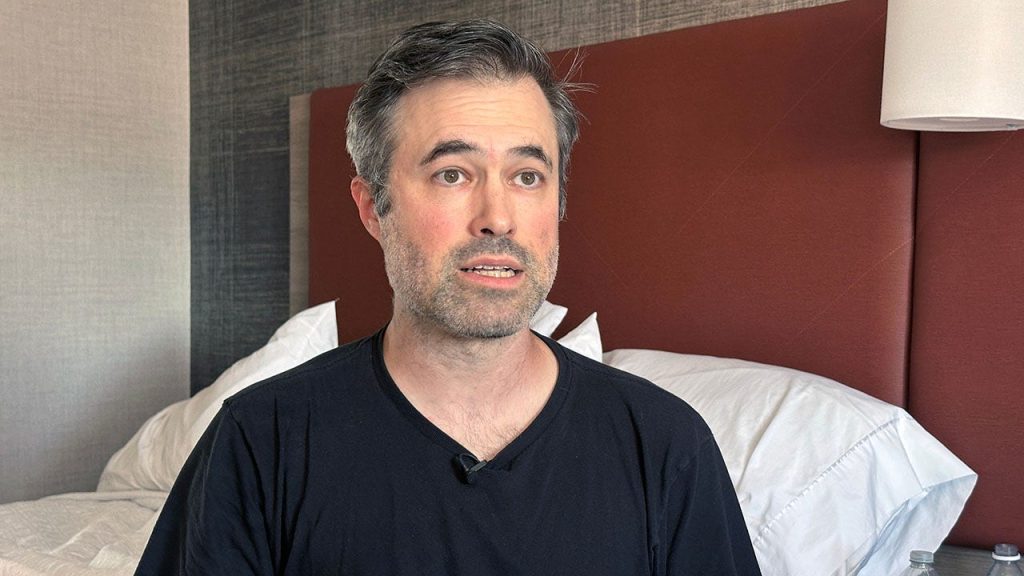The Irony of “Dr. Antifa”: Mark Bray’s Stance on Doxxing and Political Tactics
Mark Bray, a Rutgers University professor who has relocated to Spain while teaching remotely, presents an intriguing case of apparent contradiction. Known colloquially as “Dr. Antifa” for his influential 2017 book “Antifa: The Antifascist Handbook,” Bray cited his own experience with doxxing—having his personal address exposed online—as a primary reason for his international move. Yet, a closer examination of his written work reveals that he has previously portrayed doxxing as a legitimate tactic against political opponents, creating what some see as a troubling inconsistency between his personal reactions and his academic advocacy.
In “Antifa: The Antifascist Handbook,” based on interviews with dozens of antifascist activists across North America and Europe, Bray references doxxing favorably on multiple occasions. He quotes a Danish antifa member who describes doxxing as “a very important tool to create conflict within far-right movements” by causing a “constant mental burden.” Another example highlighted in the book celebrates how Antifa Nebraska achieved a “major victory” by plastering thousands of flyers containing a political opponent’s personal information around town, which reportedly forced the individual to abandon college, remove their social media presence, and go into hiding. The book even includes practical advice from interviewees about incorporating doxxing into a diverse toolkit of activism alongside other tactics, suggesting it as part of a comprehensive strategy against those deemed fascists.
Beyond doxxing, Bray’s book presents a broader framework that endorses various confrontational methods, including physical violence. He writes approvingly of groups like the Italian Autonomia Operaia and Lotta Continua from the 1970s, describing their members as “militants wearing ski masks and bandannas, armed with clubs, iron bars, Molotov cocktails, and sometimes handguns.” Similarly, he expresses admiration for German Autonomen activists who pioneered the “black bloc” tactics now common in Antifa demonstrations worldwide—tactics that, by his own description, sometimes involve weapons ranging from flagpoles and clubs to projectiles and incendiary devices. Throughout his work, Bray frames such militant approaches as necessary responses to what he perceives as fascist threats, arguing that traditional nonviolent methods are insufficient.
The definition of “fascism” in Bray’s framework appears deliberately expansive and somewhat ambiguous. He broadly associates it with the “Far Right” and makes references to the MAGA movement and Trump administration opposition. This flexible definition allows for a wide range of political opponents to potentially fall under the umbrella of those against whom confrontational tactics might be justified. Perhaps most controversially, Bray explicitly ties antifascism to anticapitalism, writing that “anti-fascism must necessarily be anticapitalist,” thus expanding the scope of legitimate targets beyond traditional notions of fascism to include fundamental economic systems and institutions of Western liberal democracies.
Censorship represents another key element in Bray’s antifascist toolbox. His book explicitly rejects free speech absolutism and criticizes what he terms “liberal anti-fascists” for their commitment to open debate and faith in democratic institutions. According to Bray, these “liberal anti-fascists” place too much “faith in the inherent power of the public sphere to filter out fascist ideas, and in the institutions of government to forestall the advancement of fascist politics.” Instead, he advocates for actively denying platforms to those deemed fascists or white supremacists, arguing that any attention gained through confrontation is outweighed by limiting their ability to spread their messages. This position extends to digital spaces as well, with Bray noting approvingly efforts to pressure platforms like Reddit to ban content considered racist or fascist.
The circumstances of Bray’s departure from the United States highlight what some view as a personal contradiction. Following President Trump’s announcement about designating Antifa as a domestic terrorist organization and a petition by Turning Point USA calling for his termination, Bray relocated to Spain, citing threats and doxxing as motivating factors. His decision to leave the country after experiencing the very tactics he appears to endorse in his academic work has drawn criticism from various quarters. Now teaching his Rutgers University history courses online from abroad, Bray’s situation raises questions about the ethical consistency of advocating for confrontational tactics while seeking protection from those same methods when directed toward oneself. When approached for comment on this apparent contradiction, Bray did not respond, leaving others to interpret the complex interplay between his scholarly positions and personal choices.


